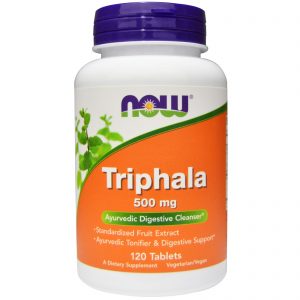The properties of Bahera
This tree, in Sanskrit Bibhita and Bibhitaka (fearless), is avoided by the Hindus of Northern India, who will not sit in its shade, as it is supposed to be inhabited by demons. Two varieties of T. belerica are found in India, one with nearly globular fruit, 1/2 to 3/4 inch in diameter, the other with ovate and much larger fruit. The pulp of the fruit (Beleric myrobalan) is considered by ayurvedic physicians to be astringent and laxative, and is prescribed with salt and long pepper in infections of the throat and chest. As a constituent of the triphala (three fruits), i.e., emblic, beleric and chebulic myrobalans, it is employed in a great number of diseases, and the kernel is sometimes used as an external application to inflamed parts. On account of its medicinal properties the tree bears the Sanskrit synonym of Anila-ghnaka, or “wind-killing.” According to the Nighantus the kernels are narcotic.



























































